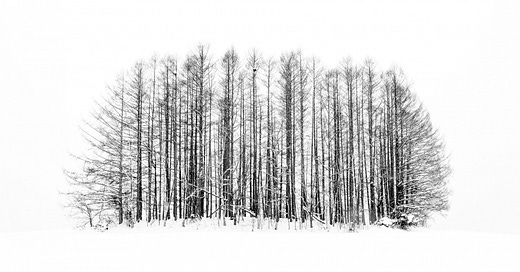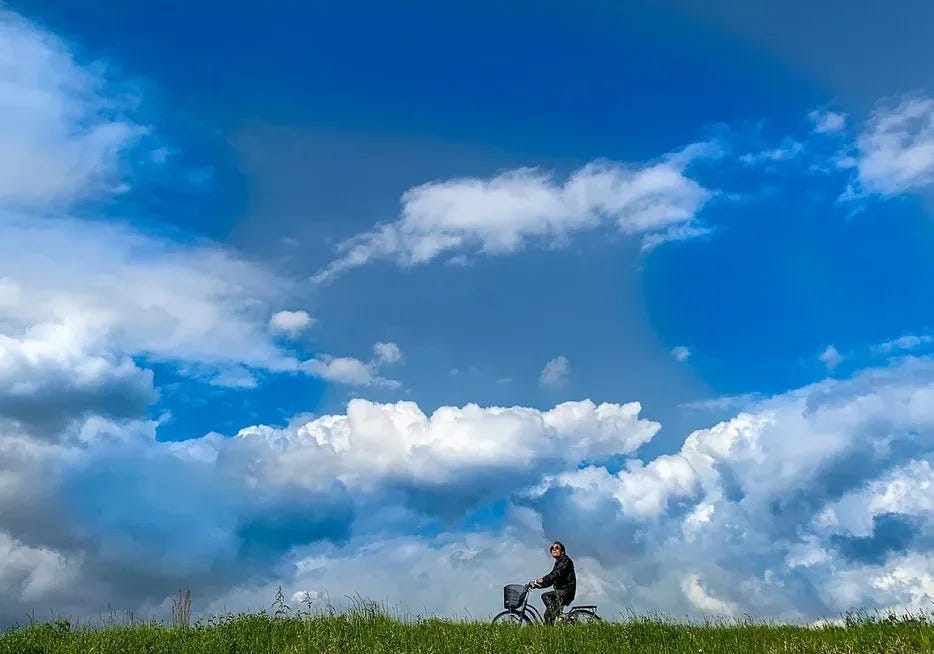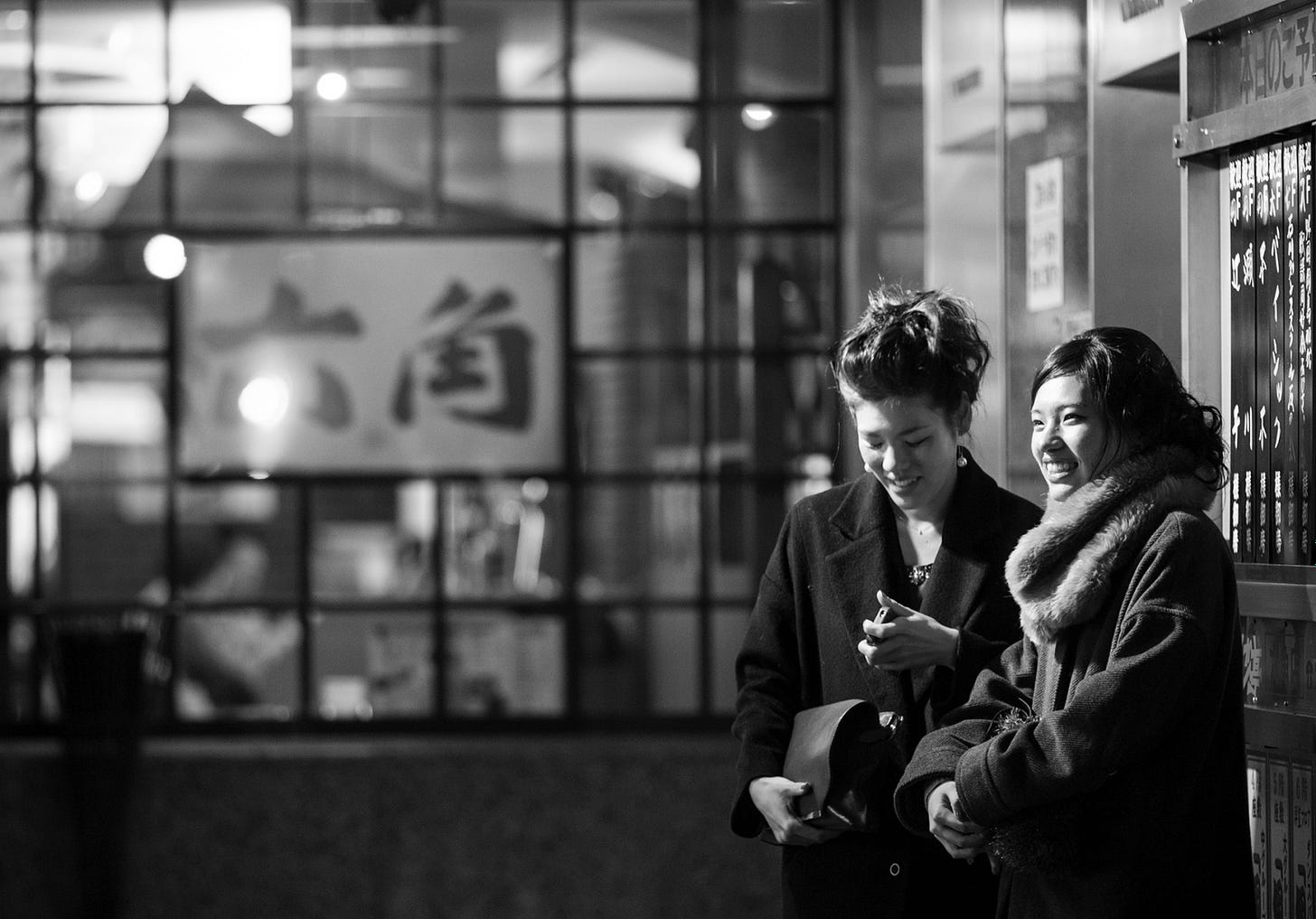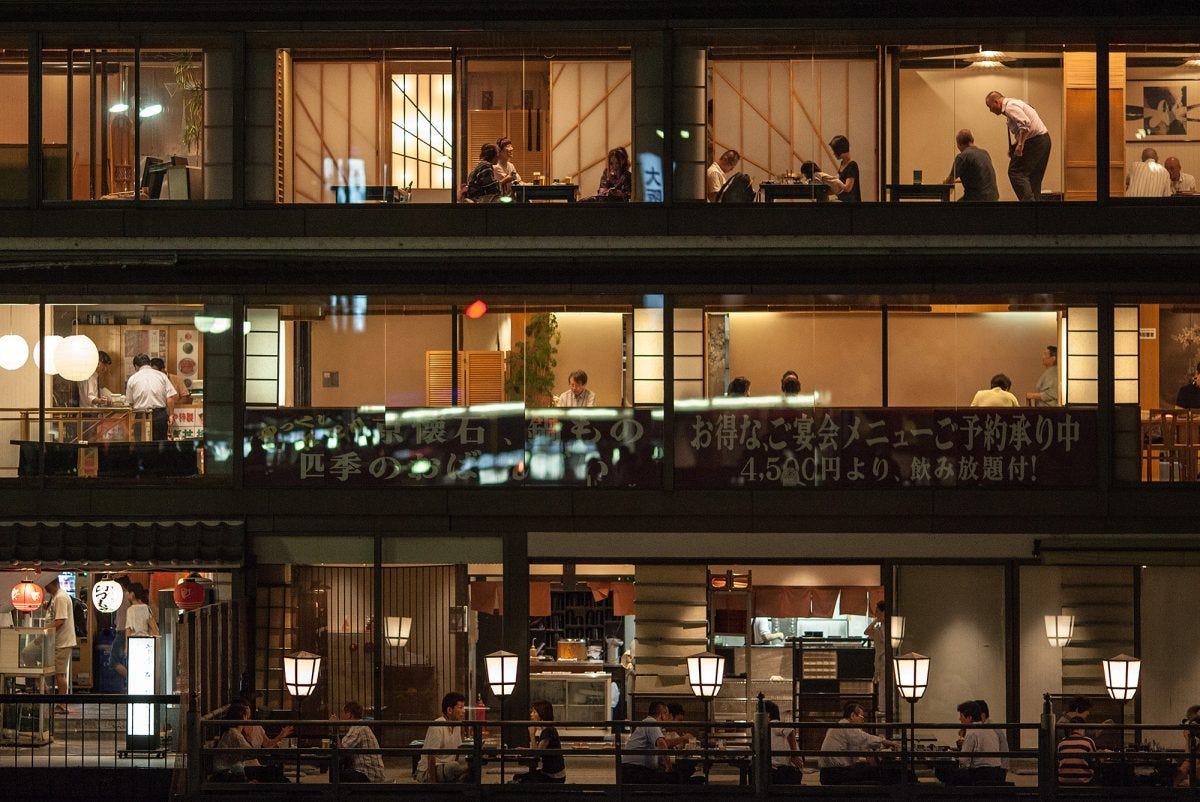In Praise of the Dullness of January and Five Books About Japan
Letters From Japan, January 2024: delightful dullness of January and five books about Japan
Happy belated New Year. I love January. I love how dull it is. It feels like the only month that we are not under the pressure to feel joyful solely due to the season. There is no holiday spirit; there is no sense of hope brought on by that first flower that blooms in the spring, no promises attached to the first sip of a chilled white wine enjoyed on an empty stomach in a late summer afternoon in a seaside town or that light evening breeze that gently reminds us that it is autumn. It is dull all the way.
In January, if you feel joyful, that is wonderful (I kind of do; I enjoy the expectation-less mood of the month). If you do not, it is also okay and, honestly, expected. Melancholy, lack of motivation, and general disinterest are all acceptable mental states; there is no seasonal or social pressure to feel differently.
While northern regions like Hokkaido and Tohoku are particularly striking during January due to heavy snowfall, the weather and scenery in Tokyo go along with the blandness of the month. The mornings and evenings are icy-cold (as in sleeping with socks on icy, ugh), the sky is often blue, but the trees are leafless, and there are no colorful flowers. There is rarely any snow in the city. Unless you are into snow sports, hiking in nearby mountains is not an option to satisfy one`s recreational needs.
So spending an entire Sunday in bed watching Netflix and, if you want to feel a little better about your day and yourself, reading (even without the soothing effect of a gentle autumn rain hitting your windows) seems like the two perfect January activities in Tokyo. Or, I think so.
So this month's letter from Japan is not about any travels or hikes or a love letter to seasons. It is about nesting at home and reading Japan-themed books.
Five books about Japan
Japan is culturally one of the most fascinating countries, but it does not unveil itself quickly. The language barrier, a very strong one, makes it difficult to get a deeper understanding of the traditions and cultural context that make the country a unique destination.
But fortunately, there is an extensive selection of books about Japan originally written in English or translated into English that help one to put initial observations about the country in a better context or get pre-acquainted with its culture before the trip. For this month's letter, I picked five Japan-themed books, each touching upon a different aspect of the country's culture, that may make good companions for a trip to Japan.1
I have to warn you. As you will shortly notice, I am terrible at writing book reviews. I find it extremely difficult to put together even short 9-10 sentence reviews on Goodreads - how many times can you mention that the book was "engaging" or "delightfully surprising" after all? So please do not take this post as an attempt to provide meaningful book reviews but as a mere list-style post about some of my favorite books related to Japan.
Lost Japan: Last Glimpse of Beautiful Japan by Alex Kerr
Lost Japan is one of the best books about Japan written by a foreigner. The book, which partially reads as a memoir, is a collection of fourteen essays by Kerr that touches upon various cultural features of the country. He introduces us to kabuki, life in rural Japan (in the deliciously remote Iya Valley in Shikoku), calligraphy, and many other aspects of Japan that he is, or once was, fascinated with. Unavoidably, there is also strong criticism - as the title suggests - but with a genuinely affectionate tone.
But do not read this excellent book by Alex Kerr during or before your first trip to Japan. Let yourself get amazed by the country first and fall in love with it blindly without noticing any of its unpleasant sides. If you loved Japan the first time, you will likely come back.
On your second visit to Japan, you may start noticing certain things about the country that are not all that fascinating - “What is that abandoned concrete building doing on an otherwise pristine beach?” By your third visit (“Oh, so these are not native but planted trees, an entire forest of planted trees? And that is a result of a state policy?”), you will likely be ready to read Alex Kerr's book to confirm your doubts about the country that you once madly fell in love with.
Do not worry, though. By then, even though the butterflies may be gone, your love for Japan will already be deep enough that you will continue to love it no matter what. Alex Kerr still lives in Japan for part of the year (dividing his time between Japan and Thailand), if that helps.
Lost Japan is a great read to dive into the world of an exceptional mind who is madly in love with Japan but is also not reluctant to criticize the country and walk us through how it changed over the decades.2
The Setting Sun by Osamu Dazai
I must confess that it took me a while to get into this book, but once I did, I did not want it to end—an excellent post-war Japan story by Osamu Dazai.
The story focuses on a widowed mother, a divorced sister, and a veteran brother with addiction issues, all struggling with the changing dynamics in their country – moving from a feudal society to an industrial one. The family, once belonging to the aristocratic class, leaves their home in Tokyo and moves to the Izu Peninsula. In the new era, they must earn their living by working in the fields.
None of the characters are particularly likeable, and that is strangely the allure of the book - they are all perfectly imperfect. You never truly get to know them and their motives; all three are full of surprises that carry you until the end of the book when you finally better understand them.
Dazai dives deep into the personal impact of the post-war dynamics on the characters but also hints at the bigger picture and the cultural dynamics of the period. The Setting Sun is a dark yet very engaging read (like many other delightful reads from post-war Japanese literature).
Woman in the Dunes by Kobo Abe
I started re-reading Woman in the Dunes by Kobo Abe as soon as I finished it. I have never done that before and would not even describe this book among my favorites. However, its strange story and even stranger atmosphere that the author skillfully created made me not want to step outside of Abe's world – even though it was – literally – a very claustrophobic environment.
The Woman in the Dunes, classified as a psychological thriller, tells the story of a school teacher and amateur entomologist visiting a small town for the weekend to search for an insect species. Unfortunately, he misses his bus back home. And after that - no, he does not turn into an insect. With all due respect to Kafka, Abe's story is much stranger than that, as it feels very real. At the urge of the village elders, he spends the night in a home occupied by a widowed woman at the bottom of a sand dune.
Also turned into a movie, Woman in the Dunes is a strange story of love, lust and acceptance.
Pachinko by Min Jin Lee
Pachinko is a Buddenbrooks (by Thomas Mann) type of novel by a highly praised Korean author, Min Jin Lee. It tells the story of a Korean family who immigrated to Japan during the pre-World War II era. The story spans multiple decades, from 1910 to 1989. Pachinko focuses on the Korean identity in Japan and how living as a minority in one of the most reserved cultures in the world feels.
The racism and discrimination the family faces constitute the center of the story. Each family member deals with their situation differently.
Pachinko was my first on-page exposure to the Korean perspective on Japan, and I thoroughly enjoyed the story and the perspective that it offered.
The author's desire to touch upon many cultural issues simultaneously results in too many characters and, consequently, some underdeveloped ones. Pachinko is, however, still a terrific (and a page-turner) read that will keep you busy for a while. It is 530 pages long.
Convenience Store Woman by Sayaka Murata
If you have already been to Asia, you probably already know that life revolves around convenience stores that are open 24/7. Japan is no exception, and it sure takes things a little bit further (when does it not?) – with some big grocery stores also being open 24/7. The convenience stores – or "kombinis" in Japanese- sell everything one may need throughout the day, including socks and clean white button-down shirts for office workers.
Given the "cultural" importance of convenience stores in Japan, I could not resist the temptation to read the highly praised Convenience Store Woman by Sayaka Murata as soon as its English translation came out in 2018.
The (anti) hero of the book, Keiko Furukura, is a recluse woman who – despite having the necessary qualifications for a much higher-paying job – dedicated her life to the convenience store where she had been working for decades. But then, what is a better job? How do we find it?
Convenience Store Woman is not from one of those books where the message is to follow your heart and do what makes you happy. It is delightfully much more bizarre than that. It partially reads as Murata's tribute to Alber Camus's The Stranger; I felt like emotionless Keiko could get along well with Camus's Meursault.
Murata is a very courageous writer, but I wish she pushed her hero even a little further in terms of her mental isolation and not just gave us sneak peeks of how societally unacceptable her behavior could get. Still, this refreshingly engaging read highlights some of the strangest aspects of urban Japanese culture.
As always, thank you for being here. After this travel-less edition, next month's edition will hopefully talk about my travels to one freezingly cold and one excruciatingly humid place.
All the best,
Burcu
Apologies for the irrelevancy of the photos, I had no photos of all the books’ covers.
If you also love Thailand and Bangkok (like I do), Bangkok Found is another fantastic read by Alex Kerr.










Thanks for sharing these book reviews with beautiful pictures, that's also very nice to read! I just bought "Lost Japan: Last Glimpse of Beautiful Japan" by Alex Kerr and am even more intrigued to read it now! "Pachinko" and "Convenience Store Woman" are also among my favorites, nice to see that you enjoyed them as well - they are both very impactful, in different ways. I however hated Dazai's extremely misogynistic 『人間失格』 and do not wish to read anything by him ever again. Also! What about the beautiful fuchsia camellias everywhere in town? ^^
Your reviews are so much better than you suggest! I have only two threads keeping me connected to Japan until I get to return for another long stay in coming years. Yours is one of them. I was there for 3 months last year and spent every day both confused in trying to understand so many things, and overwhelmed with love at all the kindness that the Japanese showed me. I love the breadth of perspectives that your choice of books offers. Thank you.